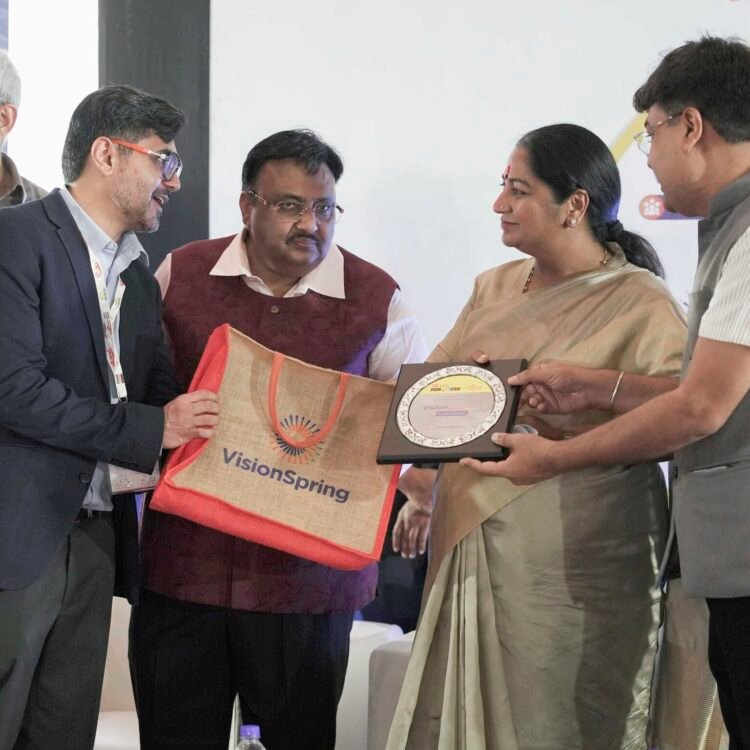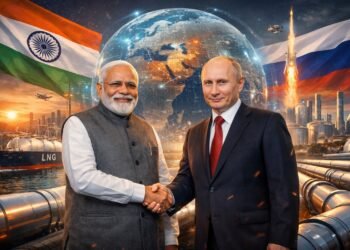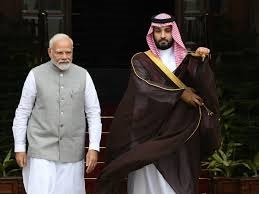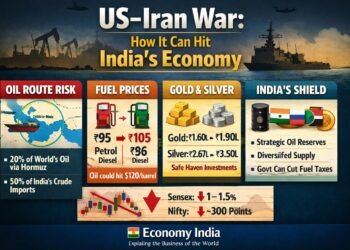New Delhi (Economy India): In an ambitious step toward eliminating avoidable vision impairment in India, the VisionSpring Foundation, in collaboration with Optician India, hosted VisionConnect 2025 at the International Optics Fair in New Delhi.
The event served as a unique platform for industry leaders, optical professionals, eye care experts, government officials, students, and entrepreneurs, all converging to drive the India Clear Vision Mission. Over 500 participants attended the day-long conclave, making it one of the largest eye health-focused gatherings in recent years.
With a blend of policy discussions, industry networking, and skill-building sessions, VisionConnect set the tone for how India can address its massive vision correction gap – one that has both health and economic consequences.
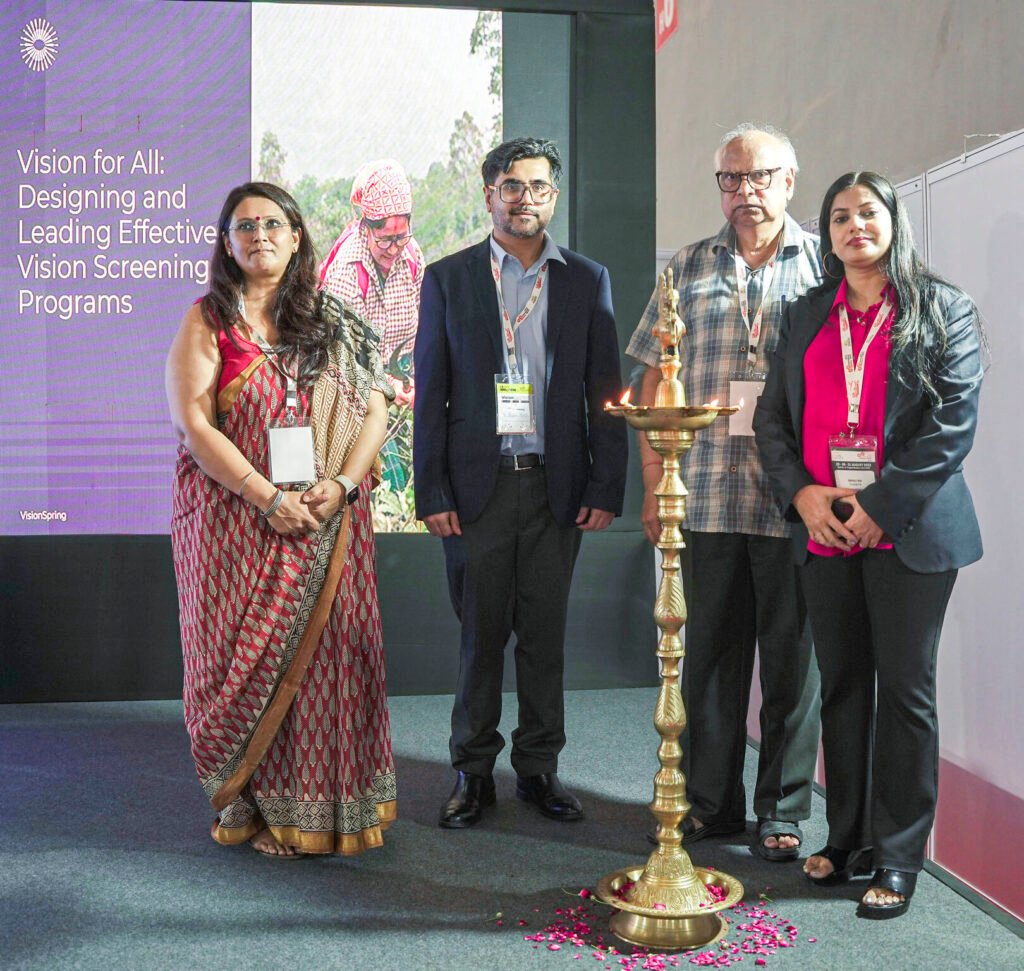
Delhi CM Rekha Gupta Highlights Clear Vision as an Economic Imperative
The highlight of the event was the presence of Hon’ble Chief Minister of Delhi, Smt. Rekha Gupta, who underscored the importance of access to eyeglasses as a driver of both productivity and social equity.
“Clear vision is not just a health intervention – it is an economic necessity. Lakhs of people in Delhi require eyeglasses to lead more productive lives. By bridging this gap, we can unleash an economic impact worth ₹25,000 crores in the city alone,” she said in her keynote address.
Citing official estimates, she revealed that approximately 86 lakh people in Delhi – 38% of its population – currently need eyeglasses. Addressing this unmet need, she added, would improve not only individual productivity but also household income, educational outcomes, and the overall quality of life.
Smt. Gupta also expressed strong support for the “Vocal for Local” initiative, encouraging domestic manufacturing of eyeglasses. She noted that promoting Made in India eyewear would not only create jobs but also reduce reliance on imports while ensuring affordability for the masses.
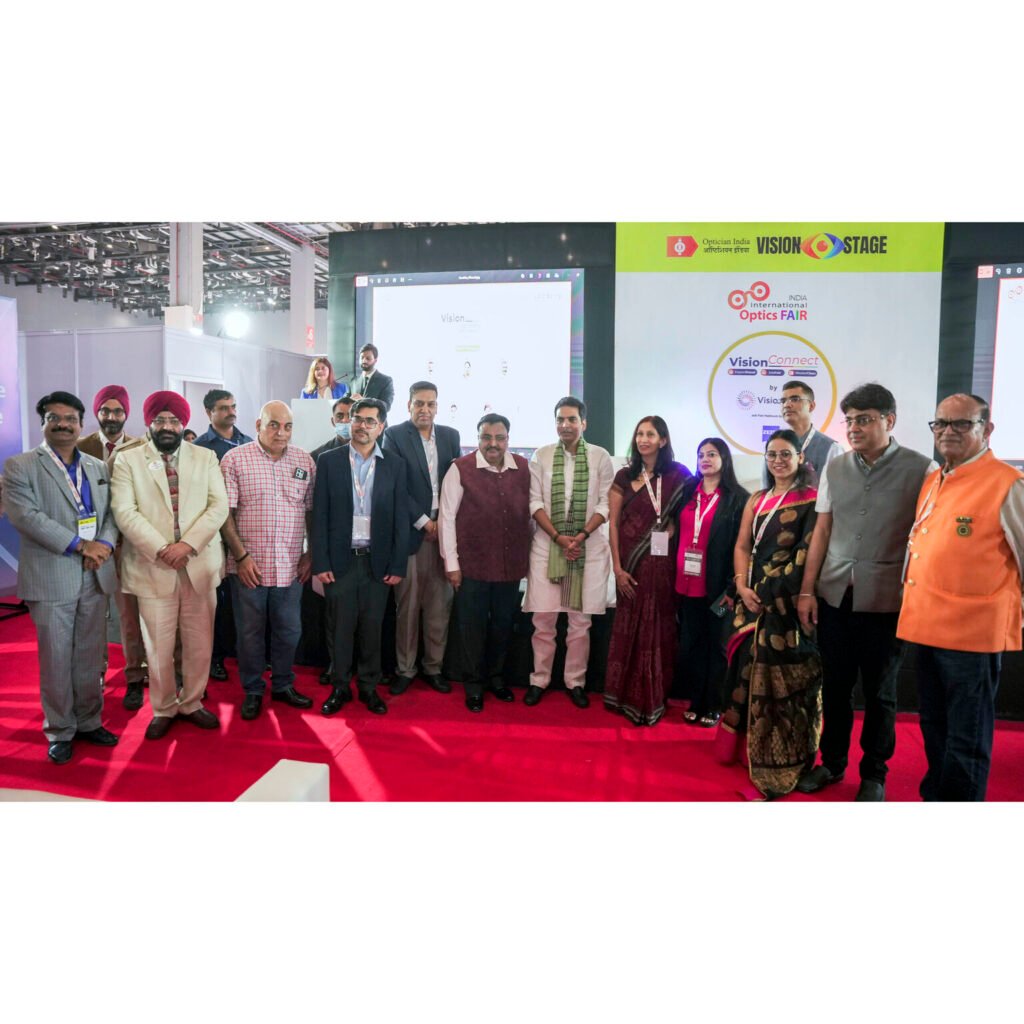
Pankaj Singh MLA Advocates Eye Care for Noida
Adding to the deliberations, Shri Pankaj Singh, Hon’ble Member of the Uttar Pradesh Legislative Assembly from Noida, stressed the urgency of extending the Clear Vision Mission to other regions, particularly urban hubs like Noida.
“Access to eyeglasses can transform lives. From classrooms to workplaces, clear vision enhances performance, boosts confidence, and contributes to the local economy. Noida, being a hub of young professionals and students, needs greater interventions in this space,” he remarked.
His intervention placed emphasis on regional inclusivity, ensuring that India’s Clear Vision Mission does not remain confined to metro cities but expands to growing urban and semi-urban regions.
Bridging India’s Eye Health Gap
India faces one of the world’s largest challenges in uncorrected vision impairment. Studies indicate that over 275 million Indians need vision correction, yet a large percentage continue to live without access to basic eyeglasses.
The consequences are severe:
- Students underperform in classrooms due to blurred vision.
- Workers in both formal and informal sectors suffer productivity losses.
- Women and rural communities are disproportionately excluded due to low awareness and affordability issues.
VisionConnect 2025 brought these challenges into sharp focus, while offering solutions rooted in collaboration, innovation, and policy support.
VisionConnect 2025: A Platform for Learning and Career Building
A major highlight of the conclave was its emphasis on skill-building and professional growth for young eye care professionals.
The event featured:
- Masterclasses led by industry veterans on latest eye care technologies.
- Skill development sessions such as Vision for All that prepared optometry students for real-world challenges.
- Networking opportunities for students and job seekers with leading organisations in the optical and vision care industry.
This two-way knowledge exchange benefitted both senior leaders and young professionals. While experts debated policy and strategy, students accessed mentorship, internships, and pathways to employment.
VisionSpring’s Call to Action
Anshu Taneja, Managing Director, VisionSpring Foundation, articulated the organisation’s mission during the event:
“Through VisionConnect, we are proud to create a platform that brings together industry leaders, eye care experts, optical professionals, optometrists, government officials, and students. While leaders and experts shape the future of eye health across sectors, students and job seekers gain opportunities to learn from experts, access leading vision organisations, and build meaningful industry connections. With exclusive masterclasses and skill development sessions like Vision for All, we are equipping the next generation of eye care professionals with the practical insights needed to drive lasting change. This initiative will catalyse the India Clear Vision Mission.”
His remarks resonated with the central theme of the event – that access to eyeglasses is not just about individual health but about collective progress.
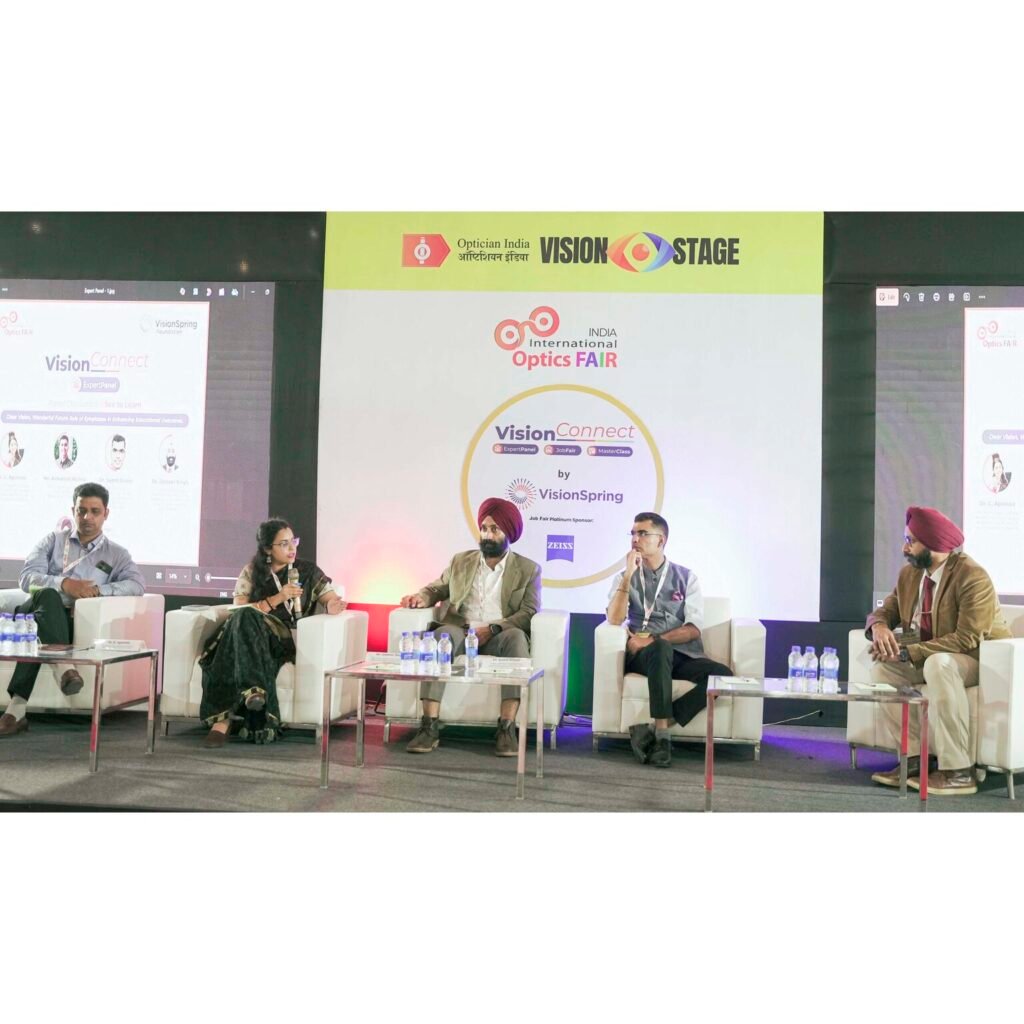
The Economic Case for Clear Vision
A recurring theme across discussions was the economic dimension of vision correction. Experts stressed that by ensuring timely access to eyeglasses, India could unlock substantial economic gains.
- In Delhi alone, bridging the eyeglass gap could lead to ₹25,000 crores in added productivity.
- Nationally, improved vision could translate into billions of dollars in GDP contribution.
- Better vision means fewer errors at work, higher efficiency, and improved safety – particularly in sectors like manufacturing, transport, and education.
By reframing eyeglasses as economic infrastructure, VisionConnect 2025 helped shift the policy narrative toward recognising vision correction as a growth accelerator.
Social Impact: Inclusion and Equity
The event also explored the social justice aspect of vision correction. For millions of women, children, and low-income workers, eyeglasses are often considered a luxury.
Panel discussions highlighted that:
- Women are twice as likely to be affected by uncorrected vision impairments due to lack of healthcare access.
- Students without glasses often drop out or perform poorly in school.
- Elderly populations risk social exclusion when their vision deteriorates.
By ensuring affordable and accessible eyeglasses, India can make strides toward inclusive development.
Toward the India Clear Vision Mission
The India Clear Vision Mission is an ambitious national goal to eliminate avoidable vision impairment by expanding access to affordable eyeglasses.
VisionConnect 2025 served as both a catalyst and a roadmap for achieving this mission. By bringing together policymakers, industry leaders, and frontline professionals, it demonstrated how collective action can transform public health outcomes.
The event ended with a resounding call to action:
- Scale up local manufacturing to make eyeglasses affordable.
- Expand awareness campaigns to rural and urban populations.
- Train the next generation of optometrists to meet growing demand.
- Integrate eye care into mainstream health and development agendas.
The resounding success of VisionConnect 2025 reflects a paradigm shift in India’s approach to eye health. No longer viewed merely as a medical intervention, eyeglasses are now recognised as enablers of education, productivity, and economic growth.
With strong political will, industry partnerships, and grassroots mobilisation, the India Clear Vision Mission is poised to make a lasting impact on millions of lives.
For India, achieving universal access to eyeglasses is not just about vision – it is about unlocking the nation’s true potential.
(Economy India)

